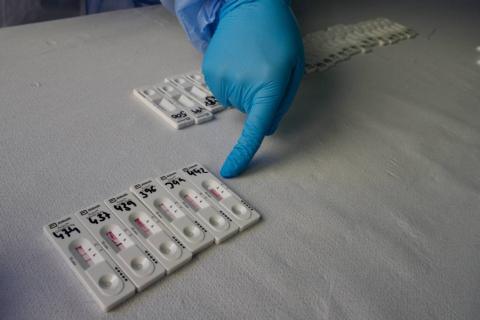Reaction to the possible emergence of new variants of SARS-CoV-2 due to the increase of cases in China
The end of the zero covid policy in China is leading to an increase in the number of cases and has revived the question of whether the epidemiological situation in China could favour the emergence of new variants of the SARS-CoV-2 coronavirus.

Adobe Stock.
Fernando González Candelas - China EN
Fernando González Candelas
Professor of Genetics at the University of Valencia and researcher at the mixed unit Infection and Public Health FISABIO/Universitat de Valencia
In addition to the clinical and social consequences, the increase in covid-19 cases being experienced in China in recent weeks means an increased likelihood of the emergence of new variants of the virus with undesirable characteristics, such as increased transmissibility, escape from immune defences gained from previous infections or vaccination, or severity of the infection itself. The greater risk derives from the greater number of cases, directly linked to the number of mutations that the virus can explore to better adapt to its environment, both individual and community. In addition, given the previous health conditions in that country, where a very large number of immunocompromised people live, there is also an increased likelihood of the emergence of completely different variants to those we have seen so far, just as happened when the omicron variant appeared when delta was dominant in almost all countries.
The concern that this situation leads to is compounded by the lack of information and data on the current wave of cases, not only because of the incidence of new infections, but also because of little or no information on the variants that are associated with them. It is possible that a new variant with the above-mentioned characteristics will appear and it will take weeks, even months, before we know of its existence. This is important in order to be able to update the composition of the vaccines, as has been done in the second booster dose with the omicron variant, thus counteracting the reduced capacity of our immune system to neutralise new variants with more mutations in the epitopes (the areas of the virus proteins) that our antibodies recognise.
However, it is worth remembering that current vaccines still provide highly effective protection against severe infection and transmission. Genomic surveillance of SARS-CoV-2 allows us to accelerate the response to virus evolution should it occur.



